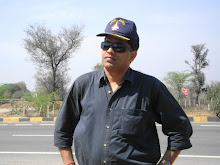I haven’t read Jaswant Singh’s book on Mohammad Ali Jinnah, but it reminds us of the controversy generated by L K Advani’s words of praise for the founder of Pakistan a few years back. Only this time, the BJP leadership is completely silent while Advani was forced by the RSS to quit as party president after having come under attack from his own party colleagues.
First Advani and now Jaswant Singh. Is it all an attempt to project a moderate image, realising the pitfalls of exclusivist politics? All this brings forth a larger question- Has Hinduta become the BJP’s existential dilemma?
The results of successive parliamentary polls have proved beyond doubt that the BJP cannot come to power on its own on the steam of Hindutva that it followed in the last nearly three decades since its inception. Even at the height of the Ram Temple movement, its tally fell far short of 200, something the Congress achieved without any perceived wave in the 2009 elections.
Sitting within the confines of the newsroom in the run-up to the polls earlier this year, I always told my colleagues reporting politics that the BJP had no chance and that the Congress will have a distinctive edge. Even two days before the exit poll results were made public, in response to an SMS query from a friend and former colleague, I had put my entire money on the Congress forming the government at the Centre. In fact, I had also told our psephologist to revise the UPA’s tally to more than 200, far in excess of the projected 155. Finally, it turned out that the Congress alone crossed 200 seats.
No boast here. The writing was clearly on the wall and one needed no expert advice or ground data to guess the broad poll outcome. It’s true regional or state-level alliances do have a bearing on poll results. But let’s not forget, the major chunk of the Indian political space has no place for the Right or Left. By nature, Indian political culture is centrist, something for which the Congress is still considered the best bet as a coalition by itself. This year, added to this was Manmohan Singh’s credentials at a time of economic crisis besides the lingering memory of Sonia Gandhi’s renunciation after the polls in 2004.
As the BJP leadership went into introspection, Hindutva was the major issue of debate. While the RSS attributed the defeat to dilution of Hindutva, some BJP leaders openly admitted that it pulled the party down when it came to competing for a pan-India appeal.
In a few days, the BJP holds its ‘Chintan Baithak’, a stock-taking exercise. Its leaders will do well to realise the futility of holding on to Hindutva. Bulk of the population, whether in urban areas or the rural hinterland, expects the political leadership to come up with a blueprint of economic opportunities rather than a Ram Temple at Ayodhya. The sooner the BJP and Sangh Parivar realise it the better for the party. Or else, we could well be looking at the return of the era of one-party dominance which in the decades immediately after independence came to be known as the ‘Congress System’.
Tuesday, August 18, 2009
Subscribe to:
Post Comments (Atom)




No comments:
Post a Comment